 Libri di Graham Harman su Unilibro.it) Libri di Graham Harman su Unilibro.it)
|
|
2023 |
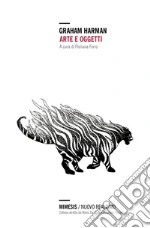 Title :
Arte e oggetti
Title :
Arte e oggettiAuthor: Harman Graham; Ferro F. (cur.) Publisher: Mimesis Per la prima volta Graham Harman, fondatore dell'ontologia orientata agli oggetti (OOO), tratta insieme e organicamente i temi che gli stanno più a cuore. Frutto di una meditata riflessione riversatasi in altre opere, Arte e oggetti costituisce la base di una nuova estetica, improntata al formalismo, al pluralismo e al realismo. In un mondo popolato da oggetti, la cui dimensione ritratta resta inattingibile, l'osservatore viene sedotto e stupito dal loro fascino. Opponendosi alla critica di matrice relazionistica e olistica, Harman rilegge le avanguardie del Novecento e le attuali forme artistiche. Ispirandosi ai pensatori chiave del formalismo (Kant, Greenberg e Fried), Harman ne elabora una versione weird in salsa OOO, che rilancia il ruolo della bellezza e della teatralità. L'autonomia delle opere d'arte diventa così chiusura che seduce e che spinge lo spettatore a divenire oggetto reale della metafora, sostituendo la banalità del letterale e donando linfa vitale all'esperienza estetica. € 26,00
Scontato: € 24,70
|
 Title :
L'unica via d'uscita dalla filosofia moderna
Title :
L'unica via d'uscita dalla filosofia modernaAuthor: Harman Graham Publisher: Kaiak € 18,00
Scontato: € 17,10
|
|
2021 |
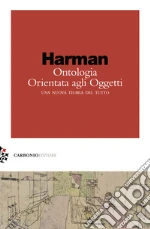 Title :
Ontologia orientata agli oggetti. Una nuova teoria del tutto
Title :
Ontologia orientata agli oggetti. Una nuova teoria del tuttoAuthor: Harman Graham; D'Isa F. (cur.) Publisher: Carbonio Editore Il pensiero moderno occidentale ci ha abituati a credere che solo ciò che percepiamo è reale, che l'essere umano sia al centro del mondo e lo scopo della filosofia sia permetterci di interpretarlo. Graham Harman teorizza una nuova, provocatoria ontologia e in questo saggio, che è il suo manifesto programmatico, sintetizza e spiega i punti chiave del suo pensiero. Al cuore dell'Ontologia Orientata agli Oggetti c'è l'idea che gli oggetti - reali, immaginari, naturali, artificiali, umani e non umani - siano indipendenti gli uni dagli altri e che rientri nei compiti della filosofia indagare la loro interazione, anche quando essa avviene in assenza della percezione umana. Nata negli anni Novanta, l'Ontologia Orientata agli Oggetti dà voce alle istanze e gli interrogativi di questa nostra epoca di smarrimento e incertezza, invitando a superare l'antropocentrismo e ad estendere la riflessione filosofica al di fuori dell'uomo. Questo innovativo modello di pensiero ha saputo infiammare il dibattito culturale degli ultimi anni, trovando applicazione negli ambiti più disparati, dall'ecologia all'arte, e ha avuto una potente eco in particolare nel mondo dell'architettura. € 17,50
|
|
|
1919 |
 Title :
On War
Title :
On WarAuthor: Clausewitz Carl Von, Graham J. J. (TRN), Harman Graham (INT) Publisher: Repeater € 16,60
|
|
|
1918 |
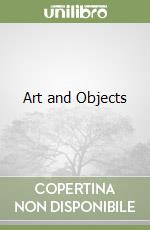 Title :
Art and Objects
Title :
Art and ObjectsAuthor: Harman Graham Publisher: Polity Pr € 65,50
|
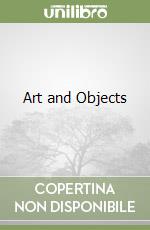 Title :
Art and Objects
Title :
Art and ObjectsAuthor: Harman Graham Publisher: Polity Pr € 22,30
|
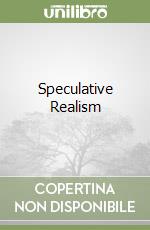 Title :
Speculative Realism
Title :
Speculative RealismAuthor: Graham Harman Publisher: JOHN WILEY € 23,40
|
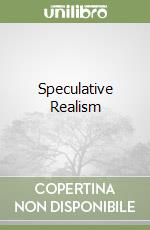 Title :
Speculative Realism
Title :
Speculative RealismAuthor: Graham Harman Publisher: JOHN WILEY € 65,50
|
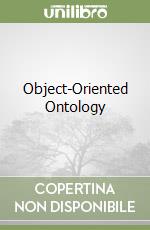 Title :
Object-Oriented Ontology
Title :
Object-Oriented OntologyAuthor: Graham Harman Publisher: PENGUIN GROUP € 15,00
|
|
|
1917 |
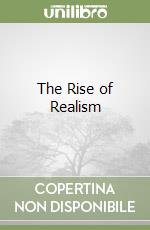 Title :
The Rise of Realism
Title :
The Rise of RealismAuthor: Delanda Manuel, Harman Graham Publisher: Polity Pr € 60,80
|
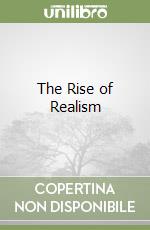 Title :
The Rise of Realism
Title :
The Rise of RealismAuthor: Delanda Manuel, Harman Graham Publisher: Polity Pr € 22,40
|
|
1916 |
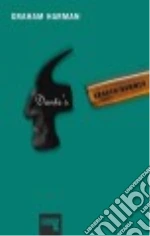 Title :
Dante's Broken Hammer
Title :
Dante's Broken HammerAuthor: Harman Graham Publisher: Baker & Taylor In this book the founder of object-oriented philosophy transforms one of the classic poets of the Western canon, Dante Alighieri, into an edgy stimulus for contemporary continental thought. Focusing his attention onPurgatorio, Harman dissects Dante's theory of sincerity and how this effected the metaphysics ofcommitment found in such later thinkers asPascal, Kierkegaard, Sartre, Badiou and Kant. € 13,40
|
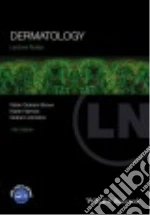 Title :
Dermatology
Title :
DermatologyAuthor: Graham-Brown Robin, Harman Karen, Johnston Graham, Graham-Brown Matthew (CON) Publisher: Blackwell Pub “A very well written introductory dermatology text with excellent clinical photographs and diagrams. We would highly recommend this for those wishing to grasp the basic concepts in dermatology.”British Journal of Dermatology With beautiful colour artwork throughout, Dermatology Lecture Notes includes a glossary of dermatological terms, and provides an excellent balance between theory and clinical relevance. € 42,70
|
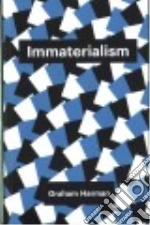 Title :
Immaterialism
Title :
ImmaterialismAuthor: Harman Graham Publisher: Polity Pr In this book the founder of object-oriented philosophy deploys his model of objects in the context of social theory. In Part One he outlines an �immaterialist� method to counter the dual reduction linked to the two senses of materialism, which either decomposes entities into their constituent pieces or overdetermines them by way of their relations and effects. Special attention is paid to the virtues and vices of actor-network theory, with the conclusion that ANT needs more focus on the unity, autonomy, and stability of objects, not less as some theorists have proposed. In Part Two the author makes a case study for an object-oriented social theory: the Dutch East India Company (or �VOC�), wrongly belittled by the philosopher Leibniz as a mere aggregate rather than a genuine thing. The VOC qualifies for objecthood neither through �what it is� nor �what it does�, but through its irreducibility to either of these forms of knowledge. As with any object, the story of the VOC is not exhausted by what it did or might have done. The phases of its life are not demarcated primarily by dramatic incidents, but by moments of symbiosis, a term drawn from the biologist Lynn Margulis. This book provides a counterpoint to the now ubiquitous social theories of constant change, holistic networks, performative identities, and the construction of things by human practice. It will appeal to anyone interested in cutting-edge debates in philosophy and social and cultural theory. € 48,40
|
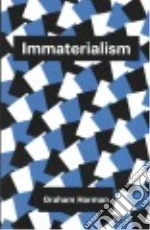 Title :
Immaterialism
Title :
ImmaterialismAuthor: Harman Graham Publisher: Polity Pr In this book the founder of object-oriented philosophy deploys his model of objects in the context of social theory. In Part One he outlines an �immaterialist� method to counter the dual reduction linked to the two senses of materialism, which either decomposes entities into their constituent pieces or overdetermines them by way of their relations and effects. Special attention is paid to the virtues and vices of actor-network theory, with the conclusion that ANT needs more focus on the unity, autonomy, and stability of objects, not less as some theorists have proposed. In Part Two the author makes a case study for an object-oriented social theory: the Dutch East India Company (or �VOC�), wrongly belittled by the philosopher Leibniz as a mere aggregate rather than a genuine thing. The VOC qualifies for objecthood neither through �what it is� nor �what it does�, but through its irreducibility to either of these forms of knowledge. As with any object, the story of the VOC is not exhausted by what it did or might have done. The phases of its life are not demarcated primarily by dramatic incidents, but by moments of symbiosis, a term drawn from the biologist Lynn Margulis. This book provides a counterpoint to the now ubiquitous social theories of constant change, holistic networks, performative identities, and the construction of things by human practice. It will appeal to anyone interested in cutting-edge debates in philosophy and social and cultural theory. € 11,60
|
||
|
1915 |
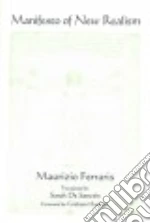 Title :
Manifesto of New Realism
Title :
Manifesto of New RealismAuthor: Ferraris Maurizio, De Sanctis Sarah (TRN), Harman Graham (FRW) Publisher: State Univ of New York Pr € 25,90
|
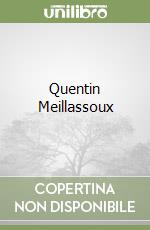 Title :
Quentin Meillassoux
Title :
Quentin MeillassouxAuthor: Harman Graham Publisher: Edinburgh Univ Pr € 136,70
|
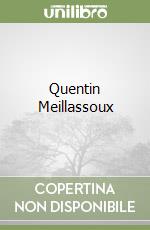 Title :
Quentin Meillassoux
Title :
Quentin MeillassouxAuthor: Graham Harman Publisher: EDINBURGH UNIVERSITY PRESS € 23,50
|
|
1914 |
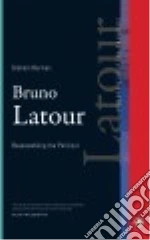 Title :
Bruno Latour
Title :
Bruno LatourAuthor: Harman Graham Publisher: Pluto Pr Bruno Latour, the French sociologist, anthropologist and long-established superstar in the social sciences is revisited in this pioneering account of his ever-evolving political philosophy. Breaking from the traditional focus on his metaphysics, most recently seen in Harman's book Prince of Networks (2009), the author instead begins with the Hobbesian and even Machiavellian underpinnings of Latour's early period and encountering his shift towards Carl Schmitt and finishing with his final development into the Lippmann / Dewey debate. Harman brings these twists and turns into sharp focus in terms of Latour's personal political thinking. Along with Latour's most important articles on political themes, the book chooses three works as exemplary of the distinct periods in Latour's thinking: The Pasteurization of France, Politics of Nature, and the recently published An Inquiry Into Modes of Existence, as his conception of politics evolves from a global power struggle between individuals, to the fabrication of fragile parliamentary networks, to just one mode of existence among many others. € 39,30
|
|
|
1913 |
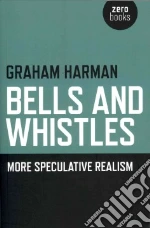 Title :
Bells and Whistles
Title :
Bells and WhistlesAuthor: Harman Graham Publisher: Zero Books
€ 24,10
|
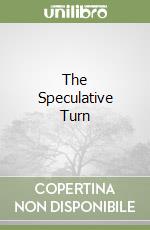 Title :
The Speculative Turn
Title :
The Speculative TurnAuthor: Bryant Levi (EDT), Srnicek Nick (EDT), Harman Graham (EDT) Publisher: Lightning Source Inc € 13,70
|
|
1912 |
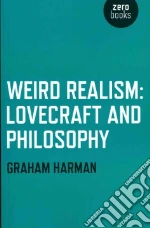 Title :
Weird Realism
Title :
Weird RealismAuthor: Harman Graham Publisher: Zero Books
€ 22,30
|
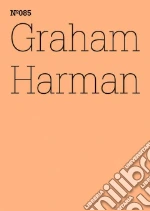 Title :
The Third Table / Der dritte Tisch
Title :
The Third Table / Der dritte TischAuthor: Harman Graham Publisher: Hatje Cantz Pub € 8,50
|
|
1911 |
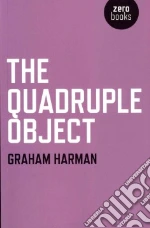 Title :
The Quadruple Object
Title :
The Quadruple ObjectAuthor: Harman Graham Publisher: Zero Books In this book the metaphysical system of Graham Harman is presented in lucid form, aided by helpful diagrams. In Chapter 1, Harman gives his most forceful critique to date of philosophies that reject objects as a primary reality. € 15,20
|
 Title :
A History of Palestine
Title :
A History of PalestineAuthor: Kramer Gudrun, Harman Graham (TRN) Publisher: Princeton Univ Pr It is impossible to understand Palestine today without a careful reading of its distant and recent past. But until now there has been no single volume in English that tells the history of the events--from the Ottoman Empire to the mid-twentieth century--that shaped modern Palestine. The first book of its kind, A History of Palestine offers a richly detailed interpretation of this critical region's evolution. Starting with the prebiblical and biblical roots of Palestine, noted historian Gudrun Krämer examines the meanings ascribed to the land in the Jewish, Christian, and Muslim traditions. Paying special attention to social and economic factors, she examines the gradual transformation of Palestine, following the history of the region through the Egyptian occupation of the mid-nineteenth century, the Ottoman reform era, and the British Mandate up to the founding of Israel in 1948. Focusing on the interactions of Arabs and Jews, A History of Palestine tells how these connections affected the cultural and political evolution of each community and Palestine as a whole. € 29,00
|
|
1910 |
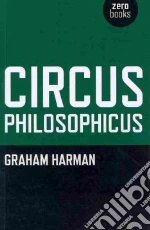 Title :
Circus Philosophicus
Title :
Circus PhilosophicusAuthor: Harman Graham Publisher: Zero Books € 8,90
|
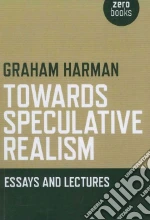 Title :
Towards Speculative Realism
Title :
Towards Speculative RealismAuthor: Harman Graham Publisher: Zero Books These writings chart Harman's rise from Chicago sportswriter to co-founder of one of Europe's most promising philosophical movements: Speculative Realism. This fascinating collection of eleven essays and lectures from 1997 to 2009, anchored by Harman's rebellious transformation of Heideggerian philosophy, shows the evolution of his object-oriented metaphysics from its early days into an increasingly developed philosophical position With grace, wit, and a remarkable inventiveness Harman invites us to return to basic philosophical questions. Whether or not one agrees with Harman's conclusions his work will be an inspiration for many. Martin Hagglund, Harvard University, author of Radical Atheism must read for scholars interested in metaphysics, philosophy or science studies: Myra Hird, Queen's University, Canada, author of The Origins of Sociable Life € 15,20
|
|
2007 |
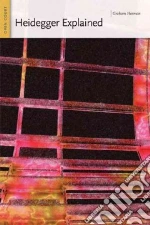 Title :
Heidegger Explained
Title :
Heidegger ExplainedAuthor: Harman Graham Publisher: Open Court Pub Co Martin Heidegger's (1889-1976) influence has long been felt not just in philosophy, but also in such fields as art, architecture, and literary studies. Yet his difficult terminology has often scared away interested readers lacking an academic background in philosophy. In this new entry in the Ideas Explained series, author Graham Harman shows that Heidegger is actually one of the simplest and clearest of thinkers. His writings and analyses boil down to a single powerful idea: being is not presence. In any human relation with the world, our thinking and even our acting do not fully exhaust the world. Something more always withdraws from our grasp. As Harman shows, Heidegger understood that human beings are not lucid scientific observers staring at the world and describing it, but instead are thrown into a world where light is always mixed with shadow. The book concludes with a comprehensible discussion of the philosopher's notoriously opaque concept of the fourfold. € 25,00
|
|
|
2005 |
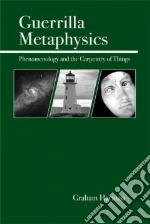 Title :
Guerrilla Metaphysics
Title :
Guerrilla MetaphysicsAuthor: Harman Graham Publisher: Open Court Pub Co The current fashions in both analytic and continental philosophy are staunchly anti-metaphysical. There is supposedly no way to talk about the world itself ? the philosopher is confined to antiseptic discussions of language, or of other modes of human access to the world. In this provocative work, Graham Harman expands the discussion from his previous book, Tool-Being, arguing for a theory of "the carpentry of things" ? a more accessible way of viewing the world that incorporates ideas from Husserl, Levinas, Lingis, and other philosophers. € 31,20
|
|
|
2002 |
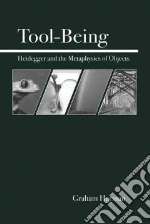 Title :
Tool-Being
Title :
Tool-BeingAuthor: Harman Graham Publisher: Open Court Pub Co Martin Heidegger (1889?1976) influenced the work of such diverse thinkers as Sartre and Derrida. In Tool-Being, Graham Harman departs from the prevailing linguistic approach to analytic and continental philosophy in favor of Heideggerian object-oriented research into the secret contours of objects. Written in a colorful style, it will be of interest to anyone open to new trends in present-day philosophy. € 37,50
|
|